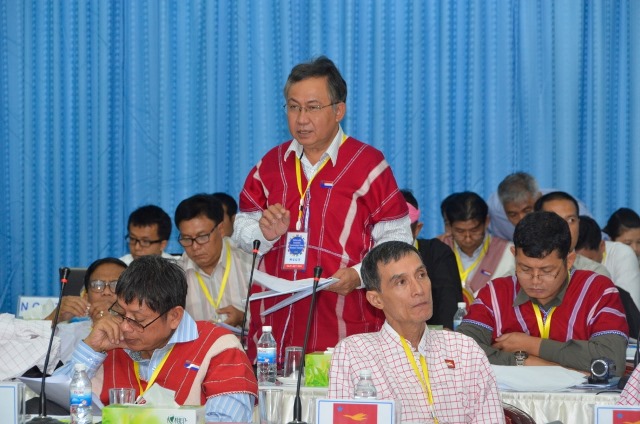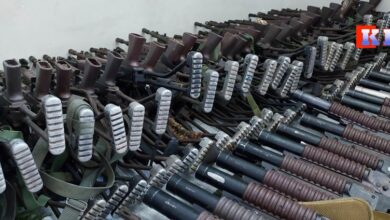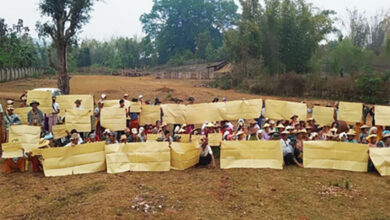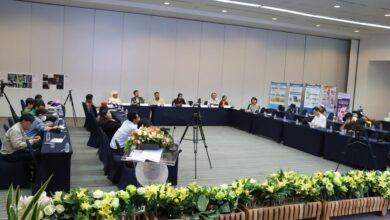KNU’s Decision to Suspend Itself from UNFC Proves Divisive

The decision by the leadership of the Karen National Union to suspend membership from the United Nationalities Federal Council in August has been met with both criticism and praise, with one analyst stating the move was the “right decision to make,” while some Karen community leaders have argued it weakens the ethnic groups’ push for peace and ethnic equality.
Speaking to Karen News following the decision the General Secretary of the KNU, Padoh Kwe Htoo Win, said that the UNFC’s refusal to reform its “top down” decision making process was the reason for the decision.
“We do not withdraw from the UNFC. We have only temporarily suspended our participation with the group, as we need to consult and review the policies and structure of the alliance.” Padoh Kwe Htoo Win said, adding, “We have proposed a structure and policies that are in-line with the changing political context and that would make our alliance stronger including a more parallel decision making body instead of our existing top-down model that we have been practicing through our revolution period… the leadership [of the UNFC] must be a collective leadership. It should not be like chairman, vice-chairman and the secretary that have power.”
The UNFC is an ethnic alliance group of which the KNU has, until now, been a core member.
The KNU suspended its membership of the UNFC during the 1st congress of the alliance, which met on August 25 in Chiang Mai, Thailand. On August 30th, KNU representatives at the Congress submitted a nine point proposal recommending that the UNFC change its structure and policies.
The KNU move was made in protest after its proposal was not discussed and then later rejected by the majority of UNFC members. The KNU said it is set to hold an executive committee meeting to make a final decision for its further involvement with the UNFC.
One analyst who specializes in Burma’s ethnic politics agreed with the KNU decision. “I believe it was the right decision to make.” Paul Keenan, a senior researcher at the Burma Centre for Ethnic Studies, said. “The KNU remains within the NCCT and as such is unlikely to alter the peace process, what detractors should be aware of is the fact that every delay, instigated by the UNFC, only gives the Burma Army more power and therefore defeats their own decades long arguments.”
The Nationwide Ceasefire Coordination Team (NCCT) is an alliance of ethnic armed organisations working for a nationwide ceasefire and is separate from the UNFC, but many UNFC members including the KNU are also in the NCCT.
The UNFC’s rigid structure had long been a cause of tension for the KNU, Mr. Keenan added. “The rotating leadership role put forward by the KNU was the best way forward for all UNFC members. In reality, the UNFC is controlled by a few members with differing objectives and is likely to put controlling members interests above those of the people that each group are supposed to represent,” Mr. Keenan said, adding that the KNU was frustrated that the Kachin Independence Organization had too much power in the UNFC because it held the chair.
The KNU’s decision has been divisive, however, with significant parts of the Karen community criticizing the move. The Karen Women’s Union released a statement maintaining the decision was in contradiction to KNU’s own policies. The KNU, by suspending its membership with UNFC, has weakened the push by ethnic armed groups for national equality and their call for rights to self-determination, the KWU argued.
“We see that it [the suspension] is in contradiction to KNU policies. The decision also seems to be influenced by individuals, groups and personal attitudes. Therefore, we put out our position statement to voice our concern to KNU over this action,” Naw Ohn Hla, a spokeswoman from the KWU said in an interview with Karen News last week.
Mahn Htein Win Sein, chairman of Pantanaw Township Karen Literacy and Culture committee, also disagreed with the decision in an interview with Karen News, arguing that the issue of ethnic equality was related to all nationalities in Burma and that peace needed the unified involvement of all the ethnic groups. “As many as 95% of Karen nationalities [in our region] accepted the KNU as the mother organization that leads Karen politics. The KNU need to listen to the voices of our Karen people. We only learned that there was a press conference held at the border region – that is not good enough. We want to say that the opinions of all Karen need to be heard and considered,” Mahn Htein Win Sein said.
Mr. Keenan said the KNU’s purpose was to fight for Karen people, and not hand over hard-fought political powers to other ethnic groups. “By remaining within the UNFC the KNU would have given the right to decide Karen people’s fate to other ethnic groups, something that they have been fighting against for over sixty years and anyone who claims ethnic unity is essential does not grasp what achievements, or lack thereof, that other ethnic alliances have been able to provide,” he said.
Mr. Keenan also argued that each ethnic organization had differing objectives in the peace process. “Alliances where there has been a single objective, like fighting the Burma Army, are fine, but during peace negotiations each ethnic group has differing objectives, the motivations and desired outcomes are not the same, especially when conflict continues in Kachin and Shan States.”
Padoh Kwe Htoo Win cautioned that the decision did not herald that the KNU was not abandoning its work with fellow ethnic originations. “This [suspension] will not affect our collaboration with ethnic groups. For example, our KNU will work with ethnic groups as individual organizations. The KNU will also work with other political organizations and armed groups that are not members of the UNFC. The KNU will also work with community based organizations. These collaborations are not restricted by being a member of the UNFC. Therefore, this will not affect our overall political goal. This is how the KNU see it.”




